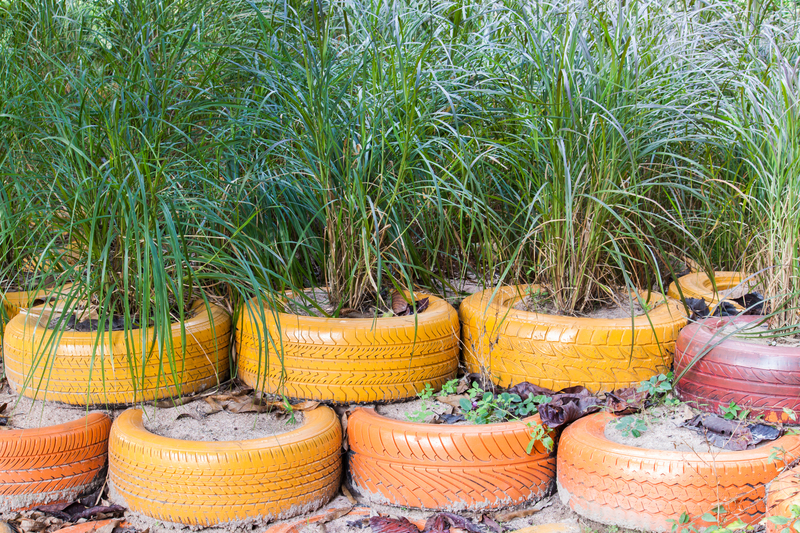Teaching Kids the Importance of Recycling Through Play
Recycling is a crucial habit for building a sustainable future, but explaining its significance to children may seem challenging. However, making the topic engaging through games and interactive activities can help kids truly grasp the importance of recycling while sparking their natural curiosity. This article explores innovative ways to teach children about recycling through the power of play, ensuring that learning is both fun and memorable.

Why Start Early? The Value of Teaching Recycling to Children
Children are natural learners. Their everyday experiences shape lifelong habits, and environmental responsibility is no exception. By introducing recycling concepts early, parents and educators can empower kids to become eco-conscious citizens who care for the planet.
- Early lessons become lifelong habits.
- Kids influence their families and peers.
- Understanding environmental impact boosts empathy and responsibility.
Teaching kids the importance of recycling through play makes the lesson relatable and memorable, instilling pride in their ability to make a real difference.
The Power of Play-Based Learning
Play is the language of childhood. Games, role-play, and creative activities transform abstract ideas like recycling into tangible, actionable knowledge. Hands-on experiences allow children to process information at their own pace, build problem-solving skills, and boost motivation.
Why Play Works for Teaching Environmental Awareness
- Engagement: Playful activities capture attention, making it easier to remember lessons.
- Understanding: Sorting, creating, and experimenting deepens comprehension beyond rote learning.
- Empowerment: Children see how their actions (like proper sorting or upcycling) create visible results.
- Teamwork: Group recycling games foster social skills and collaborative problem-solving.
Fun and Effective Recycling Games for Kids
Ready to make recycling irresistible? Below are several tried-and-tested activities and creative games to teach recycling for children at home or in the classroom.
1. Recycling Sorting Relay
Objective: Teach kids to differentiate between recyclables, compost, and landfill waste.
- Gather clean, safe items (plastic bottles, paper scraps, fruit peels, etc.).
- Label bins: Recycle, Compost, and Trash.
- Divide children into teams. Let them race to sort items into the correct bins.
- Discuss: Why does each belong in its bin? Highlight mistakes for learning opportunities.
2. Upcycled Art Projects
Objective: Foster creativity and show the usefulness of "waste."
- Challenge kids to create toys, decorations, or artworks from discarded materials (egg cartons, jars, cardboard).
- Host an upcycled art show with prizes for creativity or environmental messaging.
- Discuss the concept of reusing to reduce waste.
3. Recycle Bin Basketball
Objective: Turn sorting into a fun, athletic challenge.
- Set up bins for different categories (plastic, paper, metal).
- Provide cleaned recyclable items for "shooting hoops."
- Kids score points for correct sorting--ultimate recycling fun!
4. Story Time with a Twist
Objective: Use storytelling to introduce recycling heroes and adventures.
- Read picture books about recycling, such as The Adventures of a Plastic Bottle or Michael Recycle.
- Ask kids to create and act out their own stories about recycling superheroes or magical bins.
- This nurtures empathy for the environment in a relatable format.
5. Interactive Sorting Apps and Online Games
Objective: Utilize digital games to reinforce recycling lessons in a tech-friendly way.
- Explore free online recycling games for kids, such as Sort the Trash, Recycle Roundup, or Clean Up The River.
- Interactive challenges teach sorting skills by presenting fun scenarios and rewards.
Tips for Making Recycling Lessons Stick
While recycling games are effective, here are additional strategies to ensure the lessons last:
- Involve kids in real-life recycling at home and school.
- Visit a local recycling center or invite a guest speaker.
- Track your family's or class's recycling progress with charts and rewards.
- Encourage children to ask questions and problem-solve. Ask: What can be recycled in your community? Where does recycled material go?
- Combine recycling with other eco-friendly habits, like conserving water and reducing single-use plastics.
Teaching Recycling as an Everyday Ritual
Consistency is key for kids to internalize any new habit. Here's how to weave recycling lessons into daily routines:
Set Up Kid-Friendly Recycling Stations
- Use color-coded bins with large pictures of accepted items.
- Position bins at kid height.
- Label in your child's preferred language or with simple symbols for non-readers.
Assign Recycling Tasks
- Make kids "Recycling Monitors" for the day.
- Let them help with rinsing containers, taking out bins, or reminding family and classmates.
- Give positive feedback for effort and initiative--celebrate recycling success together!
Explaining the 'Why': The Impact of Recycling
Children are more likely to embrace recycling when they understand its real-world benefits. Use age-appropriate language to describe why recycling matters:
- Recycling saves energy and reduces pollution.
- It keeps oceans, rivers, and parks clean and beautiful.
- It protects animals by keeping dangerous trash out of their habitats.
- It gives new life to old items, saving resources.
Cement these concepts with play. For example, create an "ecosystem in crisis" game where trash must be sorted before it harms toy animals or plants.
Addressing Challenges and Common Questions
Kids ask great questions about recycling. Here are some tips to handle tricky moments:
- Not everything can be recycled: Explain what your local program accepts and why. Make an "Unrecyclable" box and discuss alternatives like upcycling or reducing use.
- Is it worth it? Share success stories--such as the amount of water or energy saved by recycling everyday items like cans or bottles.
- Why do we rinse materials? Show how dirty items can spoil the recycling process with a simple experiment (dirty vs. clean containers and what happens to each).
Building a Future of Green Leaders
Empowering kids to recycle is about more than sorting trash. It's about nurturing responsibility, empathy, and creativity. When children see themselves as protectors of the earth, they bring these values to their families, classrooms, and communities--and inspire others to do the same.
Recycling education is most powerful when it is ongoing, positive, and integrated into everyday life. Turn every trip to the bin, every craft project, and every environmental story into an opportunity for learning and fun.

Additional Resources: Books, Apps, and Videos
- Books: Michael Recycle by Ellie Bethel, Why Should I Recycle? by Susan Meredith, and The Adventures of a Plastic Bottle by Alison Inches.
- Apps & Games: Gro Recycling, Recycle Hero, and Toca Nature.
- Videos: Sesame Street's recycling episodes and National Geographic Kids' "Recycle Roundup."
Conclusion: Making a Difference, One Game at a Time
By teaching kids the importance of recycling through play, we can foster a new generation of environmentally conscious citizens. Our collective future depends on the habits children create today--habits shaped by learning, creativity, and fun. Whether at home or school, make recycling a joyful, rewarding adventure and watch as children become passionate ambassadors for a greener world.
Start playing, start recycling, and start changing the world--one child at a time.
```